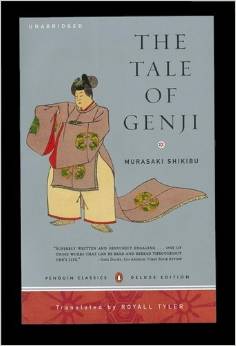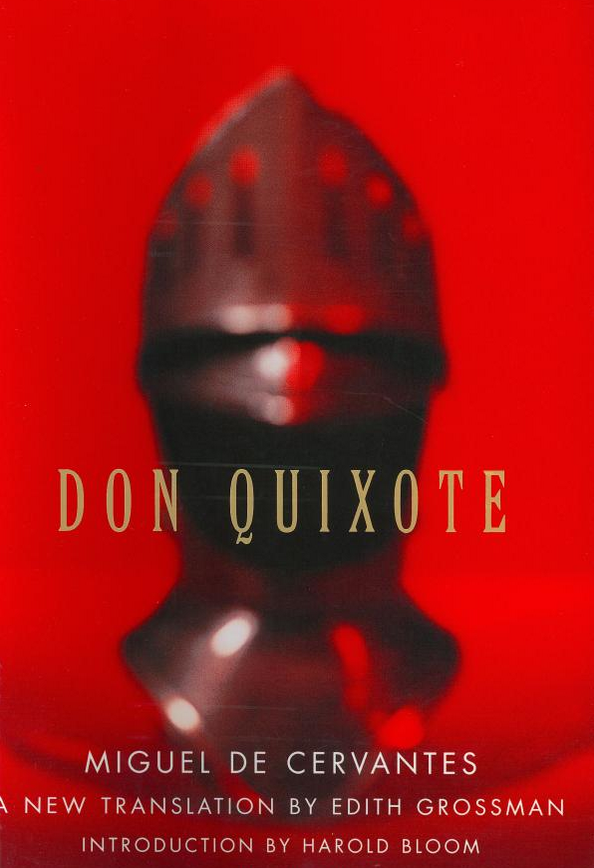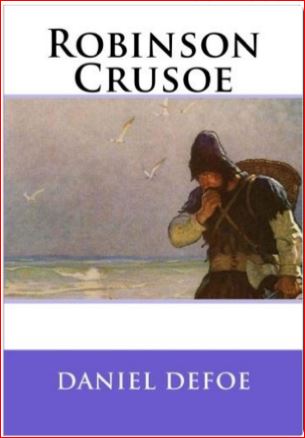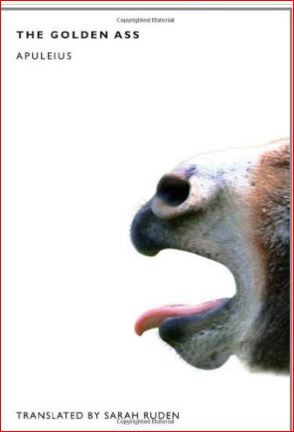WORLD’S FIRST NOVEL—AND THE WINNER IS…
I just finished reading Sarah Ruden’s acclaimed translation of The Golden Ass, a 2nd century AD, a classic and wonderfully ridiculous work that has been called the world’s first novel. And then it dawned on me: just recently I had read (and blogged about) a couple of other first novels of sorts, The Tale of Genji and Don Quixote. I started wondering: just how many novels have claimed this title?
Just what is first depends on your definition of a “novel” (which itself means and implies something new), of course, and here literary scholars have been battling it out for years. Whether the extended works of fictional prose like Petronius’ Satyricon (c. 50 AD) or The Golden Ass count or whether you have to wait until the 15th century for the invention of cheap paper, the printing press, and the resulting opportunity for “intimate” reading experiences is unclear. Some scholars even argue that the first novel by modern standards didn’t appear until the 18th century.
Novels in the Running
Using a very lose definition of a novel as a long prose narrative describing fictional characters and events, it’s hard to understand why some older works don’t qualify. The Golden Ass, which involves the journey of a man whose insatiable curiosity gets him turned into an ass and who ends up joining a cult of the goddes Isis, arguably meets these criteria. Still, the distinctive writing style, often including verse, interwoven tales (including, in the case of The Golden Ass, the myth of “Cupid and Psyche”), and distinctive mix of seriousness with satire, humor, and downright vulgarity does support differentiating early works of extended prose from the “modern novel”—although the boundaries of this differentiation vary from one scholar to the next and are being broken regularly by today’s fiction writers.
Contenders for first novel in English alone include at least ten works, including Thomas Malory’s Le Morte d’Arthur (published 1485), John Bunyan’s Pilgrim’s Progress (1678), Samuel Richardson’s Pamela (1740), Margaret Cavendish’s The Blazing World, Aphra Behn’s Oroonoko, and, puzzlingly, two different works by Daniel Defoe (Robinson Crusoe, 1719, and Moll Flanders, 1722) and another pair by John Lyly (Euphues: The Anatomy of Wit, 1578, and Euphues and his England, 1580). And when you start looking for first novels around the world, the field becomes dizzying.
And the Winner Is…
We live in the age of instant gratification, so I was able to put together this handy-dandy list of claimants for the title of first novel and come up with a list of award categories. Literary scholars can fight over this, but I think it’s time to put the false claims to rest and put some qualifiers on them So, with my apologies to my literature professor friends who will undoubtedly take offense at my audacity and ignorance, here is my own arbitrary, incomplete, semi-annotated, and ultimately indefensible list of First Novel Award categories and proposed winners:
- First ancient “Greek Novels” to survive in entirety: Callirhoe by Chariton of Aphrodisias (mid-1st century AD). No one’s really sure if the t
 itle or date is quite right. It has also been called the “oldest surviving complete prose romance” and includes elements of historical and realistic fiction to boot.
itle or date is quite right. It has also been called the “oldest surviving complete prose romance” and includes elements of historical and realistic fiction to boot. - First (Known) Picaresque Novel: The Satyricon by Petronius.
- First “Roman Novel” to survive in entirety: Apuleius The Golden Ass (Metamorphoses) by Apuleius (2nd century AD). Together with the Satyricon, also a “Roman” or “Latin” novel, it is also one of the first known picaresque novels—a realistic genre that follows the adventures of a rascal or rogue and often containing humorous and satirical elements (see Don Quixote).
- First Prose Romance in Arabic: Dashakumaracharita attributed to Dandin, 7th-8th
- First Romantic Novel in Sanskrit: Kādambari by Bāṇabhaṭṭa and one or two of his sons.
- First Novel. Lady Murasaki’s The Tale of Genji (11th century). A “psychological novel” depicting lifestyles of Heian period courtiers this work has been variously called the world’s first novel, the first modern novel, the first modern novel, the first novel by a woman, and the first novel still considered a classic.
- First Arabic Novel: Ḥayy ibn Yaqẓān (Alive, son of Awake) by Ibn Tufail, early 12th This might has also been called the first “philosophical novel,” although some earlier philosophers would beg to differ.
- First Chinese Novel: Romance of the Three Kingdoms, attributed to Lo Kuan-Chung (Luo Guanzhong).
- First Horror Novel in English. Beware the Cat by William Baldwin (1561). Also called the first novel ever published in English.
- First Epistolary Novel Cárcel de amor (Prison of Love) by Diego de San Pedro (c. 1485).
- First Modern Novel in the Western Canon: Don Quixote by Miguel Cervantes (early 17th) This novel has also been called the first modern novel, the founding work of modern Western literature, one of the earliest novels in the Western canon, and even the best literary work ever written.

- First Novel (Kind of) in “English”: Le Morte d’Arthur by Sir Thomas Malory (1485). Many critics say this isn’t really a novel because it is an anthology of unoriginal tales and/or because it is a romance, which they consider a different category than a novel.
- First Utopian (and Dystopian) Novel: Utopia by Thomas More (1516).
- First English (Kind of, again) Novel: Euphues: The Anatomy of Wit by John Lyly (1578). Critics amend this award by noting the work’s “very thin plot line.”
- First Novel-like Work to Use the Feminine Personal Name “Pamela”: The Countess of Pembroke’s Arcadia by Philip Sidney (1590ish).
- First French Novel. L’Astrée by Honoré d’Urfé (1607-1627). Also the first “pastoral novel” in French.
- First English Allegorical Novel. The Pilgrim’s Progress by John Bunyan (1678).
- First Modern Psychological Novel. La Princesse de Clèves by Madame de La Fayette (1678).

- First Short Novel (Novella) in English. Oroonoko by Aprha Behn (1688). Is a novella a novel? Who knows?
- First Modern Novel. Robinson Crusoe by Daniel Defoe (1719). This work is also often considered the first fiction novel in Western Literary tradition as well as the first epistolary novel in English, the first modern novel in English, and the first “realistic novel.” Some literary critics argue that works like Robinson Crusoe were the genuinely first “modern novels,” with the emphasis on the definition of “novel” as “new form.”
- First Sentimental Novel. Pamela by Samuel Richardson (1740). Also called the first popular novel to be based on courtship.
- First Utopian Novel by a Woman. The Blazing World by Margaret Cavendish (1666).
- First Science Fiction Novel. Frankenstein by Mary Shelley (1818).
Remaining Doubts
These partly in jest categories are helpful to me, although, again, I’m aware they are arbitrary to some degree and that I have excluded many other fine works from different eras and in different languages. It also goes without saying (although I’m saying it) that every “first” is really just the “first we know about.”
I must admit that, too, that despite these efforts, I still have trouble understanding how The Tale of Genji can be the world’s first novel when The Golden Ass, which predated it by 1,000 years or so, usually only gets credited as the only ancient Roman novel in Latin. To me, with the possible exception of some early Greek novels the Satyricon, it wins the overall prize. Regardless, it is definitely the first (but certainly not the only) novel to be told by an ass.
Cheers! –Terra
Terra Ziporyn
TERRA ZIPORYN is an award-winning novelist, playwright, and science writer whose numerous popular health and medical publications include The New Harvard Guide to Women’s Health, Nameless Diseases, and Alternative Medicine for Dummies. Her novels include Do Not Go Gentle, The Bliss of Solitude, and Time’s Fool, which in 2008 was awarded first prize for historical fiction by the Maryland Writers Association. Terra has participated in both the Bread Loaf Writers Conference and the Old Chatham Writers Conference and for many years was a member of Theatre Building Chicago’s Writers Workshop (New Tuners). A former associate editor of the Journal of the American Medical Association (JAMA), she has a PhD in the history of science and medicine from the University of Chicago and a BA in both history and biology from Yale University, where she also studied playwriting with Ted Tally. Her latest novel, Permanent Makeup, is available in paperback and as a Kindle Select Book.
- Web |
- More Posts(106)
